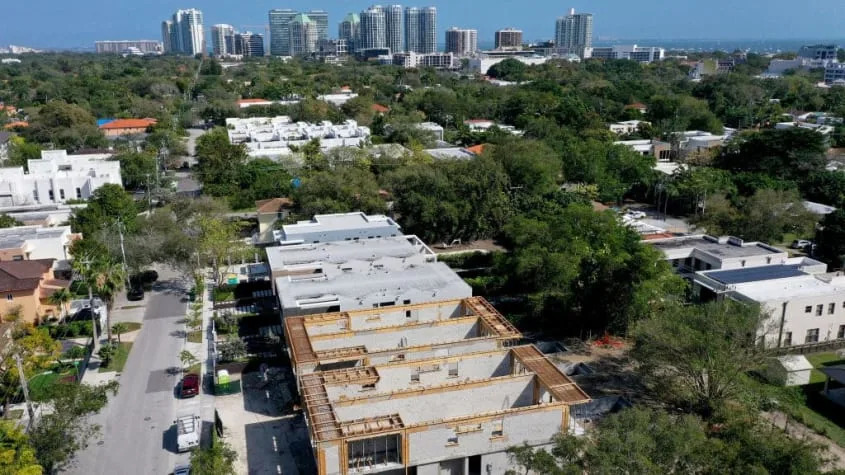The Week
Florida construction and agricultural workforces diminished after new immigration law takes effect
Catherine Garcia, Night editor – July 4, 2023

A new law that took effect in Florida on July 1 is already hitting the state’s agricultural and construction industries hard.
The law, signed by Gov. Ron DeSantis (R) in May, makes it a third-degree felony for people to use a false identification to get hired for work. Any business that is found to knowingly employ those unauthorized workers could have its license revoked and face daily fines. Additionally, hospitals that accept Medicaid are now required to question a patient’s immigration status, driver’s licenses given to undocumented immigrants in other states are invalid, and it’s a third-degree felony to knowingly transport undocumented immigrants into the state.
An estimated 772,00 undocumented immigrants lived in Florida in 2019, with many working on construction sites, farms and packaging facilities. Migrant workers began leaving the state once DeSantis signed the new law in May, The Wall Street Journal reported, including those who are authorized to work but are married to someone who isn’t. A spokesperson for DeSantis defended the law, saying that businesses that hire undocumented immigrants “instead of Floridians will be held accountable.”
At multiple construction sites in Miami, workers shared with the Journal that they have lost about half of their crews; one man said he knows people who went to Indiana, where they could make $38 an hour instead of $25 and not have to worry about running afoul of the immigration law. Tom C. Murphy, co-president of Coastal Construction, told the Journal there was already a labor shortage before the law went into effect, and while “we fully support documentation of the immigrant workforce, the new law is aggravating an already trying situation.”
Immigration is usually a federal area of law, immigration lawyer Daniela Barshel told the Journal, and it will be difficult to give guidance to clients when there are differing state and federal rules. “It’s kind of extreme that Florida passed a law like this,” she said. Companies cannot be advised to stop hiring noncitizens, since that could be discrimination on the basis of race or national origin, leaving businesses with no easy path forward. “You don’t want to be fined by the government, and you also don’t want to be sued by someone because they were authorized to work and you didn’t hire them,” Barshel said.
